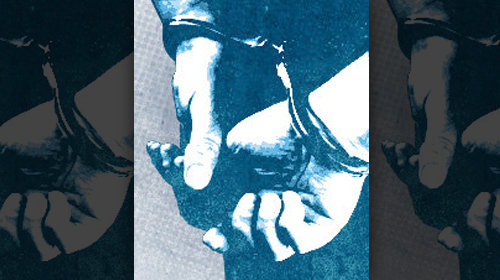
Today, the U.S. has the highest incarceration rate of any country in the world. With over 2.3 million men and women living behind bars, our imprisonment rate is the highest it’s ever been in U.S. history. And yet, our criminal justice system has failed on every count: public safety, fairness and cost-effectiveness. Across the country, the criminal justice reform conversation is heating up. Each week, we feature our some of the most exciting and relevant news in overincarceration discourse that we’ve spotted from the previous week. Check back weekly for our top picks.
South Dakota’s prison population currently holds more than 3,600 current inmates—a 500 percent increase since 1980—and is projected to grow by another 9,000 by 2022. Faced with an incarceration rate twice as high as in neighboring states North Dakota and Minnesota, South Dakota has convened a task force that will examine data and search for solutions to reduce the state’s prison population. In a in the Rapid City Journal, Kevin Woster makes a salient observation: “There's an economic issue [in South Dakota’s incarceration rate], as well as a personal liberties issue.”
Last year, Kentucky passed a bill designed to reduce its prison population and costs by diverting low-level offenders away from prison and releasing low-risk prisoners to community supervision. Results so far appear mixed. Marijuana possession arrests are only a fraction of the 2011 total, over 600 substance abuse treatment beds have been added since the law’s passage, and recidivism among newly released prisoners is far below the national average. Nonetheless, the state’s prison population has not achieved projected declines.
Like most states, Texas struggles to meet its constitutional obligation to provide counsel to poor defendants. The problem is essentially one of supply and demand: Texas has too many indigent defendants and too few public defenders. While most solutions to the national indigent defense crisis focus on supply (that is, increased funding to pay more public defenders), Vikrant Reddy of the Texas Public Policy Foundation offers an interesting demand-side solution for Texas: reclassify minor crimes so that jail time is not an option. In Mr. Reddy’s words, the idea is “to categorize some low-level, but jailable, offenses so they are punishable only by a civil or criminal fine, not incarceration. Without the prospect of potential jail time, the right to counsel is not triggered, and a county may focus its indigent defense resources on higher-level offenders.”
A federal judge recently ruled that it was unconstitutional for Colorado to deny outdoor exercise to a prisoner that has spent 12 years in solitary confinement. According to the Denver Post, U.S. District Judge R. Brooke Jackson wrote in his ruling that "the Eighth Amendment does not mandate comfortable prisons, but it does forbid inhumane conditions." An expert testified in the proceedings said that the Colorado State Penitentiary is the only "supermax type" prison in the nation that does not offer outdoor time. You can read more about the case and .
Last year, 878 prisoners were released from prison directly from solitary confinement, with very little treatment or rehabilitation. Understanding how damaging solitary confinement can be, State Sen. John Whitmire criticized the Texas Dept. of Criminal Justice for its failure to provide prisoners in solitary confinement with rehabilitative programming. Criminal justice blogger Scott Henson also offers on the issue.
Learn more about overincarceration: Sign up for breaking news alerts, , and .
